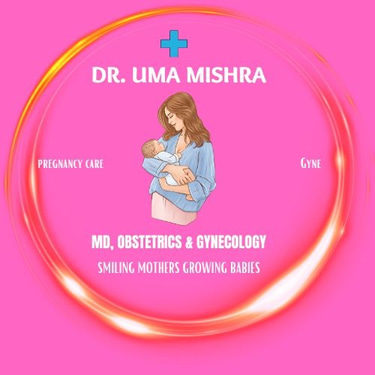Your blog post
Blog post description.
2/21/20244 মিনিট পড়ুন


Adolescent nutrition is crucial for overall health and development, and it plays a particularly significant role in the case of girls due to their unique nutritional needs during puberty. Dr Uma Mishra, Gynecologist explains comprehensive approach required towards adolescent health.
Health of a woman and so many aspects of her personality depends on her adolescence. A lot can be done during adolescent years and taking care of nutrition is one of the important areas requiring attention. Dr Uma Mishra, Gynecologist explains why adolescent nutrition is important.
1. Physical Growth and Development: During adolescence, girls experience rapid physical growth, which requires adequate nutrition. Proper nutrition supports the development of bones, muscles, and organs.
2. Menstrual Health: Girls experience the onset of menstruation during adolescence. Nutrient-rich foods are essential for maintaining menstrual health and preventing conditions like iron-deficiency anemia.
3. Cognitive Development: Adequate nutrition is essential for cognitive development, including learning, memory, and concentration. Nutrient-rich foods support brain function during this critical period.
4. Immune System Support: Proper nutrition helps boost the immune system, reducing the risk of infections and illnesses.
According to WHO (World Health Organization) and ACOG (American College of Obstetricians and Gynecologists) guidelines, the composition of the diet for adolescent girls should include a balance of macronutrients (carbohydrates, proteins, and fats) and micronutrients (vitamins and minerals). Iron and calcium are particularly important for girls due to their increased needs during puberty.
Poor nutrition in adolescent girls is observed worldwide and in India due to various factors:
1. Limited Access to Nutrient-Rich Foods: Socioeconomic factors can limit access to a variety of nutrient-rich foods, leading to deficiencies.
2. Cultural Practices: Traditional dietary practices may not always meet the nutritional requirements of adolescent girls.
3. Lack of Nutrition Education: Limited knowledge about nutrition and its importance can contribute to poor dietary choices.
4. Eating Disorders: Adolescence is a vulnerable period for the development of eating disorders like anorexia nervosa or bulimia, which can lead to inadequate nutrition.
5.Social Media: Food with less nutrition and junk foods are boosted through social media and it impacts the nutrition level of a lot many girls.
Common eating disorders observed in adolescent girls include:
1. Anorexia Nervosa: Extreme restriction of food intake, fear of gaining weight, and distorted body image.
2.Bulimia Nervosa: Periods of overeating followed by compensatory behaviors such as vomiting or excessive exercise.
Parents can contribute positively to adolescent nutrition in several ways:
1. Model Healthy Eating Habits: Parents can serve as role models by maintaining a balanced and nutritious diet themselves.
2. Provide Nutrient-Rich Foods: Ensure that the household has a variety of nutrient-rich foods available, encouraging healthy eating habits.
3. Educate on Nutrition: Teach adolescents about the importance of nutrition and its impact on their health and well-being.
4. Encourage Open Communication: Create a supportive environment where adolescents feel comfortable discussing their concerns about body image, diet, and overall health.
Gynecologists play a crucial role in contributing to the overall health of adolescent girls by addressing various aspects of reproductive and general health. Here are several ways in which gynecologists can contribute:
1. Educational Guidance: Gynecologists can provide education on reproductive health, menstruation, and sexual health. This includes explaining the changes occurring during puberty, discussing menstrual hygiene, and providing information about contraception and sexually transmitted infections (STIs).
2. Menstrual Health Management: Gynecologists can offer guidance on menstrual health, including discussing normal menstrual cycles, managing menstrual pain, and identifying potential issues such as irregular periods or heavy bleeding.
3. Contraceptive Counseling: Gynecologists can discuss contraceptive options with adolescent girls, providing information on different methods, their effectiveness, and potential side effects. This helps young individuals make informed decisions about their reproductive health.
4. Screening for Reproductive Health Issues: Gynecologists can perform screenings for reproductive health issues, including pelvic exams and Pap smears as appropriate. Early detection of any abnormalities or conditions can lead to timely interventions and improved outcomes.
5. Vaccinations: Gynecologists can administer vaccines such as the HPV (human papillomavirus) vaccine to protect against cervical cancer. Vaccination is an important preventive measure for adolescent girls.
6. Management of Menstrual Disorders: Gynecologists can assess and manage menstrual disorders, such as polycystic ovary syndrome (PCOS) or endometriosis, which may affect adolescent girls and impact their overall health.
7. Addressing Sexual Health Concerns: Gynecologists can provide a safe space for adolescents to discuss concerns related to sexual health, including questions about sexual activity, contraception, and STIs.
8. Support for Mental Health: Gynecologists can recognize the connection between reproductive health and mental well-being. Addressing issues like premenstrual syndrome (PMS), mood changes, or body image concerns can contribute to the overall mental health of adolescent girls.
9. Collaboration with Other Healthcare Professionals: Gynecologists can collaborate with other healthcare providers, including pediatricians, psychologists, and nutritionists, to address the holistic health needs of adolescent girls.
10. Promoting Healthy Lifestyle Choices: Gynecologists can encourage healthy lifestyle choices, including a balanced diet, regular exercise, and adequate sleep, as these factors contribute to overall well-being.
By addressing a wide range of reproductive and general health issues, gynecologists can positively impact the overall health and well-being of adolescent girls. Creating a supportive and educational environment fosters a sense of empowerment and helps young individuals make informed decisions about their health.
Thus, addressing adolescent nutrition for girls is vital for their physical, cognitive, and emotional well-being. By understanding and addressing the factors contributing to poor nutrition, promoting healthy eating habits, and providing support, parents can play a crucial role in fostering a positive nutritional environment for their adolescent daughters.
Consult Dr Uma Mishra for any adolescent health issues, vaccination, Obstetrics and Gynecological treatments and surgeries.
